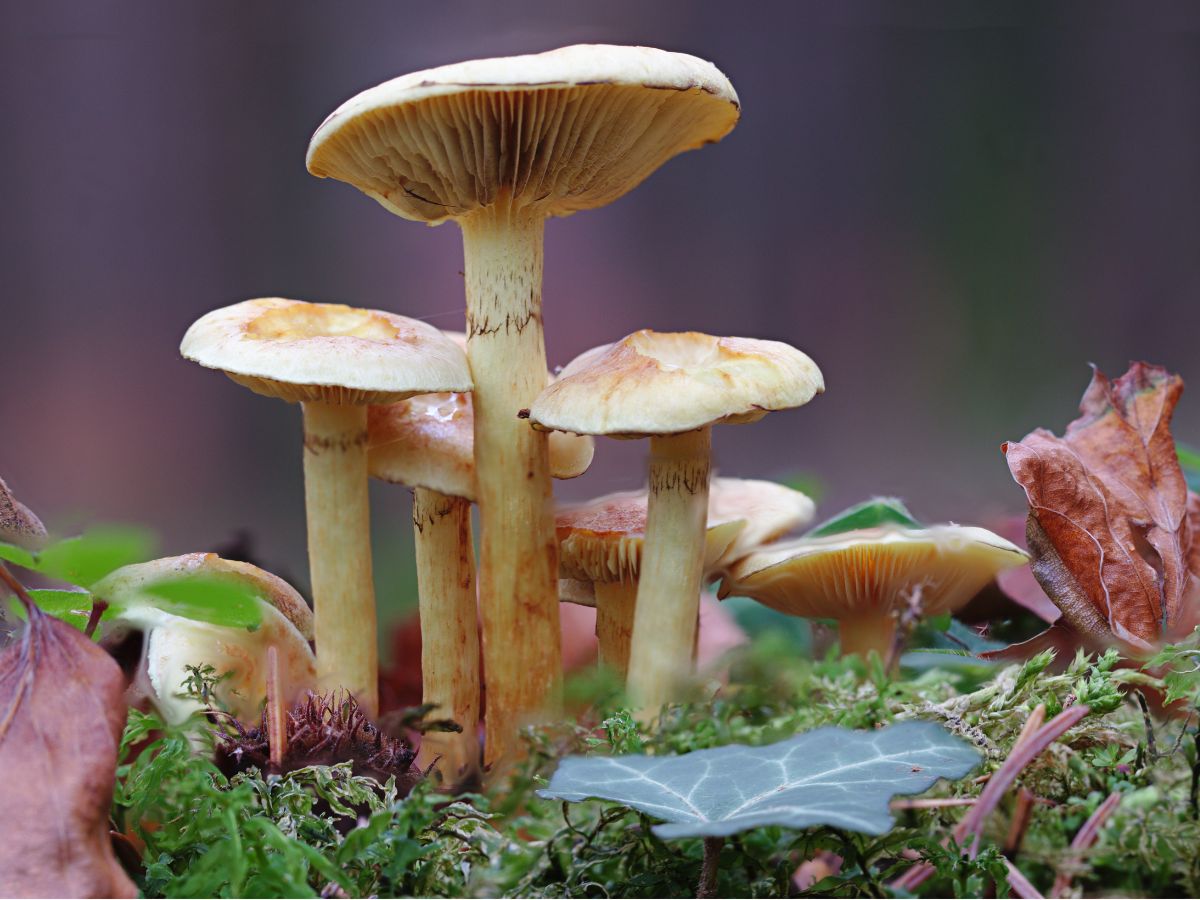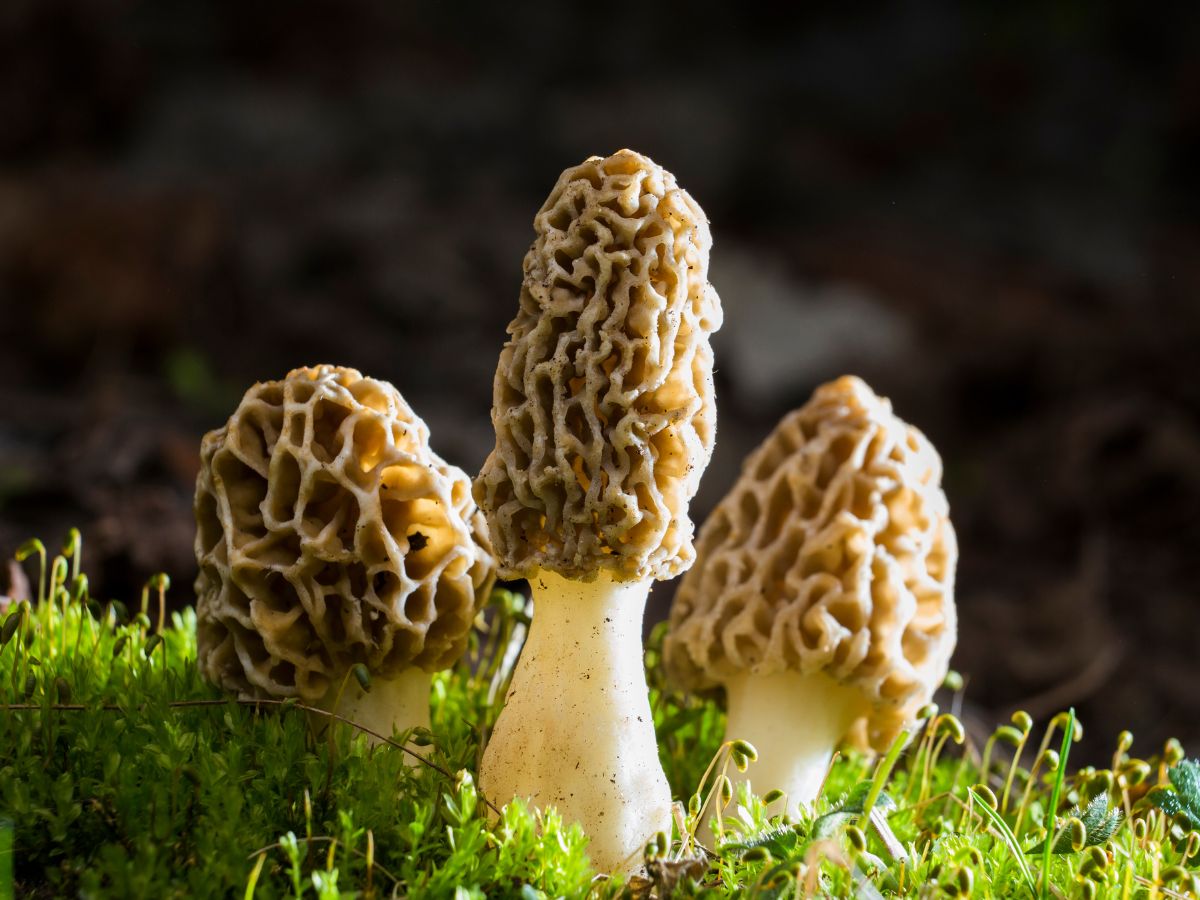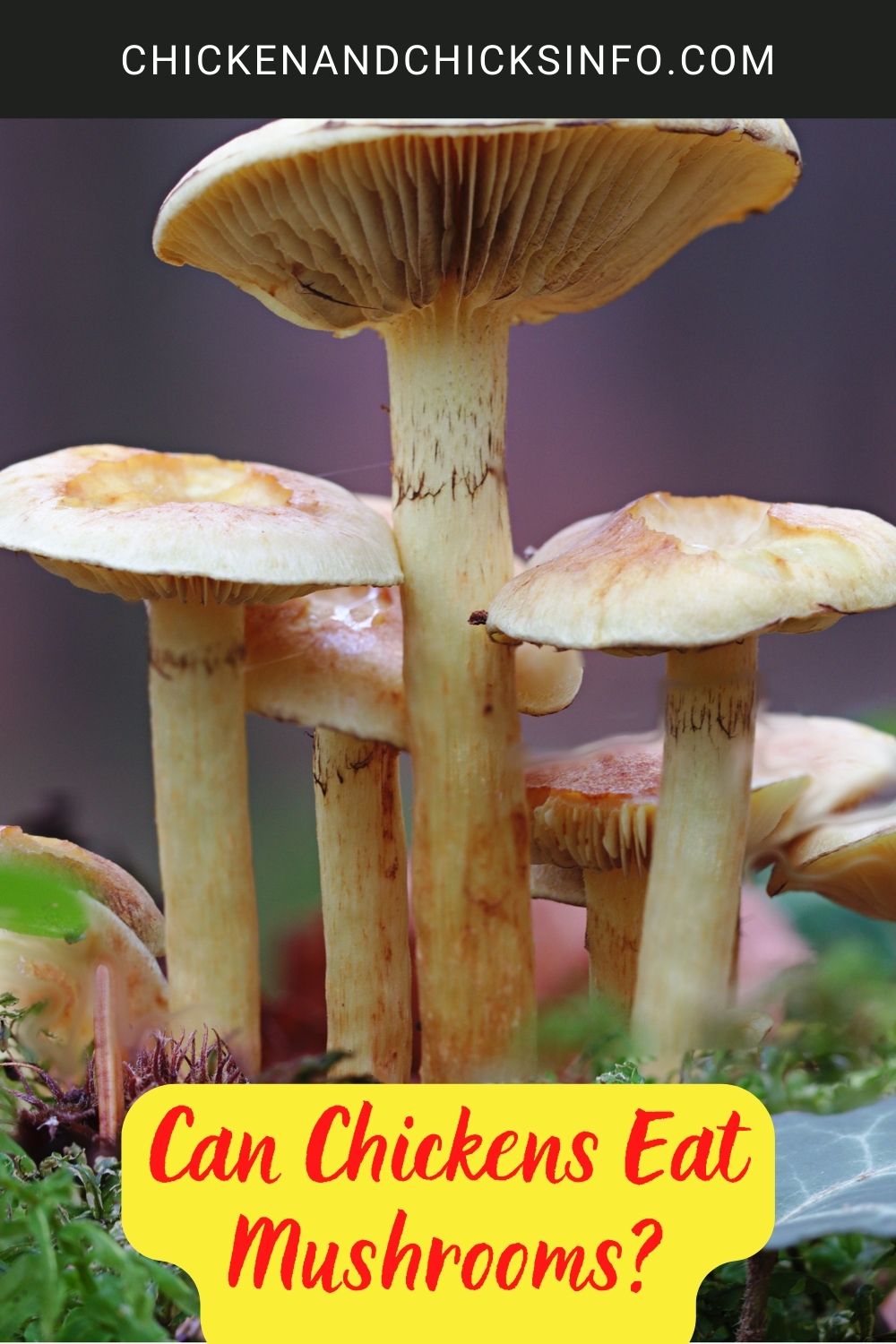
If you have wild mushrooms growing where your chickens roam free you need to do some investigating to make sure they’re safe.
With more than 10,000 known species of mushrooms ranging from perfectly safe to very poisonous, it’s a tough question to answer.
Can chickens eat mushrooms? The answer is both yes and no. Chickens can eat edible mushrooms that are safe, but they can’t eat any of the poisonous or toxic species (obviously).
Jump to:
What's in Mushrooms? (How Healthy Are They?)
Despite mushrooms being an acquired taste, for the most part, there’s no denying that they’re packed with good nutrition.
They contain more than a dozen vitamins and minerals, are rich in antioxidants, and loads of other good stuff.
The exact nutritional profile varies depending on the species of mushroom, how it was cultivated, and the method of cooking. But they’re certainly on the “healthy list” of foods for us and our chickens.
Can Chickens Eat Mushrooms?
Chickens can eat mushrooms, yes.
There is a “but” though.
The same rules apply to them as for us. If the mushrooms are of an edible and safe species, then it’s fine to feed them to your flock.
The issue is that there are so many species of mushrooms and a lot of them are toxic.
I’m sure you’ve heard that you should never pick wild mushrooms due to the dangers. Well, we’re (most of us) smart enough not to do so.
Chickens, on the other hand, are much more tempted to peck at wild mushrooms. It’s probably very unlikely that they’ll find a toxic or poisonous mushroom where you live, but there’s always that danger.
So, I’d only give my chickens shop bought mushrooms and not let them eat any wild ones they find.
Do Chickens Eat Morel Mushrooms?

Morel mushrooms are one of the more desirable of the wild mushrooms due to their taste.
If you have morels growing in your garden, you’re doing something right. They’re pretty rare and can be quite expensive due to this fact.
While there are loads of different types of morel mushrooms, it’s pretty much universally agreed that they can be pretty toxic if eaten raw.
Morel mushrooms need to be cooked properly to be safe to eat. Picking and cooking wild mushrooms is not something I would recommend, just to be on the safe side.
With so many other foods that are 100% safe for chickens, I’d feed them something else.
How to Feed Mushrooms to Your Chickens
Mushrooms are a lot easier for chickens to eat if they’re cooked. They are quite rubbery when raw.
If you’ve ever seen a chicken pecking at foods with a similar texture, you’ll know they can struggle to break up some foods.
I’d cook the mushrooms you want to feed to your flock and chop them up into easier to swallow pieces.
Here's a video with chickens eating cooked mushrooms from a bowl, and being passed some by hand:
What Can Chickens Not Eat List:

Mushrooms are on the “maybe” list, which is fine. But there are some foods that are on the “dangerous” list that you need to be aware of.
Here are some foods that are toxic to chickens that they should never get their beaks into:
Processed/Salty Foods - Keep junk food off the menu for your chickens. They don’t need or want foods high in salt and preservatives. A little here and there isn’t toxic but can cause some health issues in the long-term.
Chocolate - Most pet owners know that chocolate is toxic to a lot of household pets, and this also applies to chickens.
It’s because chocolate contains caffeine and theobromine, two compounds that are toxic to animals. This one shouldn’t be too difficult, just keep all the chocolate to yourself!
Avocado Skin and Pits - This is another food that’s very toxic to small animals. The flesh part of an avocado is fine, but the skin and pit (stone) inside contain a toxin called persin that can be deadly.
Raw Beans - Raw beans contain a toxin that can also be deadly to chickens, even in small amounts. You should never let your flock loose around bean plants or give them any uncooked beans.
Related content - Are lentils safe for chickens? (Yes, when properly prepared)
Green Tomatoes and Potatoes - A toxin you need to be aware of as a backyard flock owner is solanine.
Solanine is found in vegetables and plants in the nightshade family. It’s basically the plant’s way of defending itself from being eaten by poisoning the insects, animals, and even us.
The toxin is only present in potatoes when they’re green, the same for tomatoes. So ripe potatoes and tomatoes are fine, as are the peels.
Foods Chickens Can Eat List:

A balanced diet of good nutrition is essential to help your flock maintain optimal health, and keep producing those delicious eggs.
Most of a chicken’s diet should come from its commercial feed (approx 90%). You can treat them with healthy snacks too though, here are some chicken favs:
Vegetables - As long as you know they’re safe, you can’t go wrong by adding some veggies to your chicken’s diets. Broccoli, cabbage, carrots, etc are all rich in vitamins, minerals and more.
Fruits - The same applies to fruits. If you want to give your flock some healthy treats try some figs, banana, berries, or apples.
Grains - Chickens love grains and it is good food to get them scratching around. Try Barley, wheat, rice, oats, etc.
Cooked Foods - Next time you’re cooking some pasta, rice, lentils, meat, etc, you can give some to your flock.
Herbs - Herbs have some interesting health benefits and make for a great addition to a chick’s diet. Some are laying stimulants, some help to repel bugs, some are good for their immune system, etc.
In Summary
Chickens can eat mushrooms, yes.
As long as you’re 100% sure that the mushrooms are edible and totally safe, it’s fine to give them to your flock.
Mushrooms are packed with good nutrition and make for a healthy treat food to supplement their diet.
Resources
Different types of mushroom - Mushroom-Appreciation.com
Nutritional value of mushrooms - NYTimes.com





